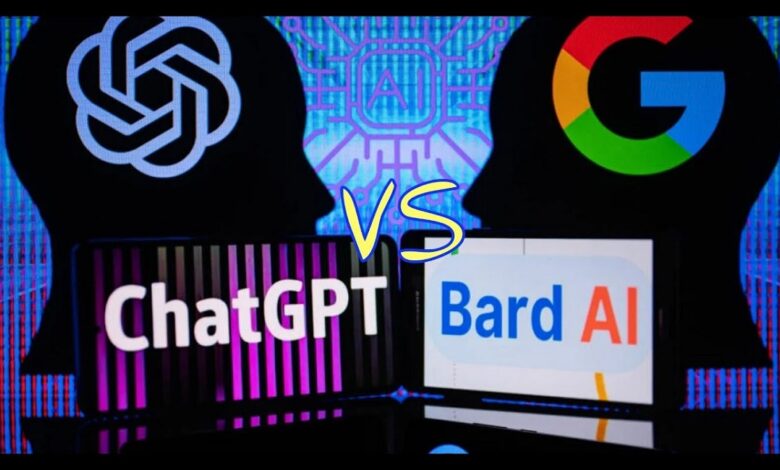ChatGPT vs. Google: Evaluating the Impact

Introduction
In recent years, artificial intelligence has made significant strides in natural language processing, and ChatGPT, developed by OpenAI, stands out as one of the most prominent examples. Meanwhile, Google, a tech giant known for its search engine, has also ventured into the AI field. In this article, we will explore the question of whether ChatGPT was Google bad decision. We will examine the landscape of AI, the objectives of both entities, potential ethical concerns, and the implications of these technologies on society. Is ChatGPT’s existence a detriment to Google’s reputation, or is it a strategic move that aligns with the evolving tech landscape?
The Rise of ChatGPT
ChatGPT, based on the GPT-4 architecture, has captured the attention of AI enthusiasts, developers, and businesses alike. OpenAI’s model has demonstrated impressive capabilities in understanding and generating human-like text, making it a valuable tool for a wide range of applications, from content generation to customer support chatbots.
Google’s AI Ventures
Google has long been at the forefront of AI research and development. Its investments in machine learning, natural language processing, and AI-powered services have shaped the digital landscape. Google’s AI ventures include projects like Google Search, Google Assistant, and the acquisition of DeepMind, a leading AI research lab.
Objectives and Ethical Considerations
To evaluate whether ChatGPT was a “bad” decision for Google, we must first understand their objectives. Google’s primary mission is to organize the world’s information and make it universally accessible and useful. They have a responsibility to develop AI responsibly, adhering to ethical guidelines.
On the other hand, OpenAI’s mission is to ensure that artificial general intelligence (AGI) benefits all of humanity. ChatGPT aligns with this mission by promoting access to advanced AI capabilities.
Ethical concerns arise in AI development, such as biases in training data, misinformation spread, and misuse of AI-generated content. Both Google and OpenAI must address these concerns in their AI projects.
Competition and Collaboration
The relationship between Google and OpenAI is complex. While they may compete in some areas of AI research, they also have opportunities for collaboration. OpenAI has a collaborative approach, as demonstrated by its partnership with Microsoft to develop AGI technologies.
Impact on Society
Both ChatGPT and Google’s AI projects have a significant impact on society. Google’s search engine revolutionized information retrieval, while ChatGPT advances human-computer interactions. These technologies have the potential to enhance productivity, accessibility, and convenience, but they also raise questions about privacy, security, and digital dependence.
Challenges and Responsibilities
As AI technologies continue to evolve, challenges and responsibilities increase. Google and OpenAI must navigate issues like data privacy, algorithmic transparency, and regulation. These challenges highlight the need for responsible AI development and collaboration with stakeholders, including governments and civil society.
Conclusion:
In conclusion, whether ChatGPT was a “bad” decision for Google depends on the perspective from which it is viewed. While ChatGPT has generated both excitement and concern, it represents a significant milestone in AI development. Google’s pursuit of AI aligns with its mission to make information universally accessible, but it also comes with ethical considerations.
Rather than framing ChatGPT as a “bad” decision, it is more productive to view it as a step in the ongoing evolution of AI, one that encourages thoughtful discussions, responsible development, and collaboration to maximize the benefits while minimizing the risks. The responsibility lies not only with tech giants like Google and organizations like OpenAI but with all of us as stakeholders in the AI-driven future.
FAQs
Certainly, here are some short FAQs related to the article:
1. What is ChatGPT?
- ChatGPT is a natural language processing model developed by OpenAI known for its ability to understand and generate human-like text.
2. What is Google’s objective in AI development?
- Google aims to organize the world’s information and make it universally accessible and useful while developing AI responsibly.
3. What ethical concerns are associated with AI development?
- Ethical concerns in AI development include biases in training data, misinformation, and misuse of AI-generated content.
4. Do Google and OpenAI collaborate on AI projects?
- While they may compete in some areas, Google and OpenAI also have opportunities for collaboration in AI research.
5. What impact do ChatGPT and Google’s AI projects have on society?
- They have a significant impact on society by enhancing productivity and accessibility, but they also raise questions about privacy and digital dependence.
6. What challenges do Google and OpenAI face in AI development?
- Challenges include data privacy, algorithm transparency, and regulatory issues that require responsible AI development and collaboration with stakeholders.
7. How should we view ChatGPT’s role in Google’s AI journey?
- Rather than labeling it as “bad” or “good,” ChatGPT should be seen as a milestone in AI development, sparking discussions and responsible approaches to AI’s impact on society.




